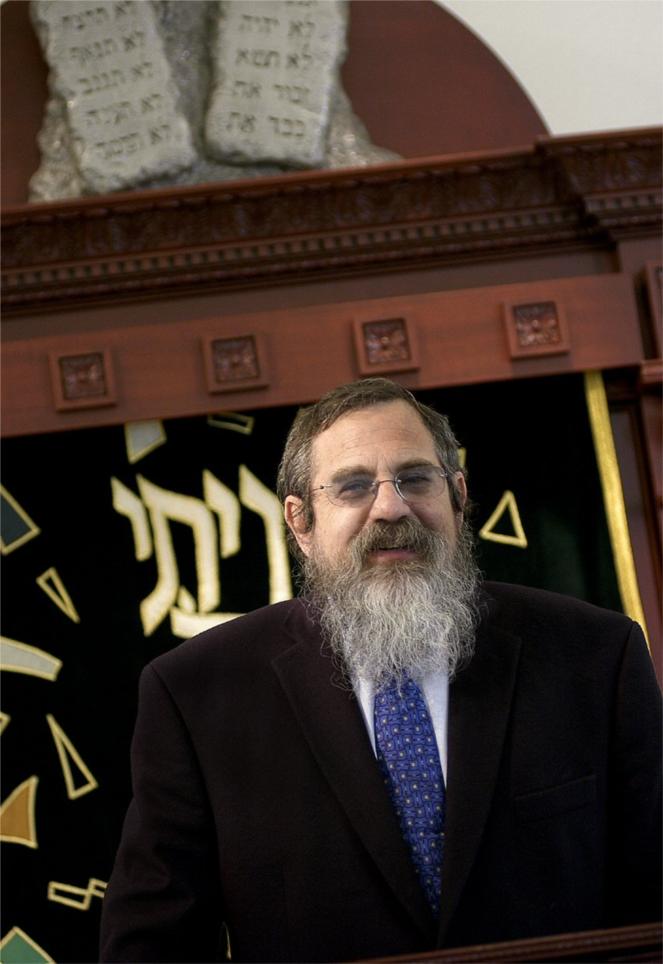

Victims of India's 1984 Bhopal gas leak which killed thousands of people ended months of sit-in protests on Friday, AFP reports, after the government promised new assistance.
About 70 people affected by the gas leak had camped on a New Delhi pavement for more than three months after walking 800 kilometres (500 miles) from Bhopal city to the capital.
The government would set up a powerful commission to ensure better "rehabilitation" for victims and their families, Chemicals and Fertilizers Minister Ram VilasPaswan told the protesters.
"The government today promised to set up a new panel with more powers to look into medical, environmental and economic support," said Rachna Dhingra, spokeswoman for a Bhopal victims group.
Paswan said the commission, to be set up after approval from the Group of Ministers, would allocate resources for rehabilitation schemes or research projects, issue tenders and identify the implementing Central and State government agencies.
The commission will expedite investigation into allegations that US-based Dow Chemicals, which has purchased the Union Carbide, bribed Agricultural Ministry officials for the registration of four pesticides manufactured by it, he said.
On disposal of waste, Paswan said the Government will not accept a proposal by the Tatas to take up the operation as it comes with a condition that the court case against Dow Chemicals, seeking to make it pay the clean-up cost, would have to be withdrawn.
D. Raja, a senior Communist leader accompanied Paswan who assured the protesters that his party will ensure that the decisions of the committee are implemented properly.
Activists said survivors would be represented on the panel.
More than 3,500 people died in the days and weeks after toxic fumes spewed out of a pesticide plant in Bhopal on the night of December 2, 1984.
Officials say nearly 15,000 people have died from cancer and other diseases since then.
Activists have put the toll at 33,000 and claim that toxins from thousands of tonnes of chemicals lying in and around the site have seeped into ground water.
"I was 28-years-old then. Our fight has been going on for 24 years, and we will keep up the pressure on the government," said survivor Hazari Bee.
What follows is a press release from a number of groups including Bhopal Gas Peedit Mahila Stationery Karmachari Sangh, Bhopal Gas Peedit Mahila Purush Sangarsh Morcha, Bhopal Group for Information and Action
Bhopali's are heading back to Bhopal after government agrees to demands
August 8, 2008
PRESS STATEMENT
NEW DELHI Bhopal survivor organisations today celebrated victory after the Government of India announced that it will set up an Empowered Commission on Bhopal, and take legal action on the civil and criminal liabilities of Union Carbide and Dow Chemical. The announcement was made today by Mr. Ram Vilas Paswan, Minister of Chemicals & Fertilisesr, at the Bhopal protest site at Jantar Mantar. Survivors of the 1984 Union Carbide gas disaster and people affected by water contamination near Union Carbide's factory Bhopal have been on strike in New Delhi for the last 130 days.
Bhopal survivors said that they were happy that the Commission would be empowered to allocate resources to different rehabilitation schemes or research projects, issue tenders, identify implementing Central or State Government agencies and change the agencies if their work is unsatisfactory. Although, the extent of funds for the Commission has not been revealed the Bhopal organizations have been assured that funds will not be a problem as the Government is committed to the Commission. The Bhopal organizations have also been assured that the Commission's scope would include environmental, social, economic and medical rehabilitation.
The survivors organizations expect the Commission to be set up in the next two months. They said that the Commission will also take up the matter of disposal of thousands of tonnes of hazardous waste that were recklessly dumped by the factory management.The organizations expressed satisfaction that in response to their demands the government will now appoint a senior lawyer to argue the case for compensation from Dow Chemical for environmental and consequent health damages. "We expect the Government to go hammer and tongs after Dow Chemical, now that the law ministry has indicated that Union Carbide's civil liabilities can be passed on to Dow," the organisations said.
On the demands for deregistering the illegally registered pesticides of Dow Chemical, and revocation of approval given to Reliance for purchase of Union Carbide's Unipol technology, the Bhopalis have decided to approach the Court. The organizations expressed satisfaction that the Government has decided that no approvals will be given to any Indian agency to purchase Union Carbide's technology in India in future.
"We have won our demands only after facing undue harassment at the hands of the Government and Delhi Police," the three organisations said. After the month-long walk and 70-day dharna in Delhi by Bhopalis failed to evoke any response from the Government, 9 Bhopalis launched an indefinite fast lasting 21 days. More than 800 people from at least 10 countries joined them in solidarity by fasting for a day or longer. Diane Wilson, a noted peace and environmental activist from the US, award-winning author of Animal's People Indra Sinha and an environmental activist from Chennai joined the Bhopalis in their indefinite fast.
International support for the campaign has been massive. Nearly 6000 faxes were sent by supporters to the Prime Minister's office during the campaign. Meanwhile, NRI and other supporters kept the pressure up by demonstrating outside Indian embassies and calling key Indian politicians over phone. Sixteen US congresspersons, and more than 80 British Members of Parliaments added their voice in support of the Bhopalis' demands, urging the Prime Minister to meet the demands and hold Dow Chemical accountable for the ongoing disaster in Bhopal.
Bhopal's Gen Next has been at the core of the public actions targeting the Government. Bhopali children not only sent letters written in blood to the PM, but also chained themselves to the Prime Minister's house and launched a campaign urging school children to send a heart to the Prime Minister. In July, 22 Bhopalis were arrested for protesting outside the Prime Minister's Office and jailed in Tihar for more than 10 days.
The organisations thanked Mr. Paswan for his consistent support over the years, and expressed hope that the Minister will provide the necessary support for the Empowered Commission to begin functioning at the earliest.
About 70 people affected by the gas leak had camped on a New Delhi pavement for more than three months after walking 800 kilometres (500 miles) from Bhopal city to the capital.
The government would set up a powerful commission to ensure better "rehabilitation" for victims and their families, Chemicals and Fertilizers Minister Ram VilasPaswan told the protesters.
"The government today promised to set up a new panel with more powers to look into medical, environmental and economic support," said Rachna Dhingra, spokeswoman for a Bhopal victims group.
Paswan said the commission, to be set up after approval from the Group of Ministers, would allocate resources for rehabilitation schemes or research projects, issue tenders and identify the implementing Central and State government agencies.
The commission will expedite investigation into allegations that US-based Dow Chemicals, which has purchased the Union Carbide, bribed Agricultural Ministry officials for the registration of four pesticides manufactured by it, he said.
On disposal of waste, Paswan said the Government will not accept a proposal by the Tatas to take up the operation as it comes with a condition that the court case against Dow Chemicals, seeking to make it pay the clean-up cost, would have to be withdrawn.
D. Raja, a senior Communist leader accompanied Paswan who assured the protesters that his party will ensure that the decisions of the committee are implemented properly.
Activists said survivors would be represented on the panel.
More than 3,500 people died in the days and weeks after toxic fumes spewed out of a pesticide plant in Bhopal on the night of December 2, 1984.
Officials say nearly 15,000 people have died from cancer and other diseases since then.
Activists have put the toll at 33,000 and claim that toxins from thousands of tonnes of chemicals lying in and around the site have seeped into ground water.
"I was 28-years-old then. Our fight has been going on for 24 years, and we will keep up the pressure on the government," said survivor Hazari Bee.
What follows is a press release from a number of groups including Bhopal Gas Peedit Mahila Stationery Karmachari Sangh, Bhopal Gas Peedit Mahila Purush Sangarsh Morcha, Bhopal Group for Information and Action
Bhopali's are heading back to Bhopal after government agrees to demands
August 8, 2008
PRESS STATEMENT
NEW DELHI Bhopal survivor organisations today celebrated victory after the Government of India announced that it will set up an Empowered Commission on Bhopal, and take legal action on the civil and criminal liabilities of Union Carbide and Dow Chemical. The announcement was made today by Mr. Ram Vilas Paswan, Minister of Chemicals & Fertilisesr, at the Bhopal protest site at Jantar Mantar. Survivors of the 1984 Union Carbide gas disaster and people affected by water contamination near Union Carbide's factory Bhopal have been on strike in New Delhi for the last 130 days.
Bhopal survivors said that they were happy that the Commission would be empowered to allocate resources to different rehabilitation schemes or research projects, issue tenders, identify implementing Central or State Government agencies and change the agencies if their work is unsatisfactory. Although, the extent of funds for the Commission has not been revealed the Bhopal organizations have been assured that funds will not be a problem as the Government is committed to the Commission. The Bhopal organizations have also been assured that the Commission's scope would include environmental, social, economic and medical rehabilitation.
The survivors organizations expect the Commission to be set up in the next two months. They said that the Commission will also take up the matter of disposal of thousands of tonnes of hazardous waste that were recklessly dumped by the factory management.The organizations expressed satisfaction that in response to their demands the government will now appoint a senior lawyer to argue the case for compensation from Dow Chemical for environmental and consequent health damages. "We expect the Government to go hammer and tongs after Dow Chemical, now that the law ministry has indicated that Union Carbide's civil liabilities can be passed on to Dow," the organisations said.
On the demands for deregistering the illegally registered pesticides of Dow Chemical, and revocation of approval given to Reliance for purchase of Union Carbide's Unipol technology, the Bhopalis have decided to approach the Court. The organizations expressed satisfaction that the Government has decided that no approvals will be given to any Indian agency to purchase Union Carbide's technology in India in future.
"We have won our demands only after facing undue harassment at the hands of the Government and Delhi Police," the three organisations said. After the month-long walk and 70-day dharna in Delhi by Bhopalis failed to evoke any response from the Government, 9 Bhopalis launched an indefinite fast lasting 21 days. More than 800 people from at least 10 countries joined them in solidarity by fasting for a day or longer. Diane Wilson, a noted peace and environmental activist from the US, award-winning author of Animal's People Indra Sinha and an environmental activist from Chennai joined the Bhopalis in their indefinite fast.
International support for the campaign has been massive. Nearly 6000 faxes were sent by supporters to the Prime Minister's office during the campaign. Meanwhile, NRI and other supporters kept the pressure up by demonstrating outside Indian embassies and calling key Indian politicians over phone. Sixteen US congresspersons, and more than 80 British Members of Parliaments added their voice in support of the Bhopalis' demands, urging the Prime Minister to meet the demands and hold Dow Chemical accountable for the ongoing disaster in Bhopal.
Bhopal's Gen Next has been at the core of the public actions targeting the Government. Bhopali children not only sent letters written in blood to the PM, but also chained themselves to the Prime Minister's house and launched a campaign urging school children to send a heart to the Prime Minister. In July, 22 Bhopalis were arrested for protesting outside the Prime Minister's Office and jailed in Tihar for more than 10 days.
The organisations thanked Mr. Paswan for his consistent support over the years, and expressed hope that the Minister will provide the necessary support for the Empowered Commission to begin functioning at the earliest.











